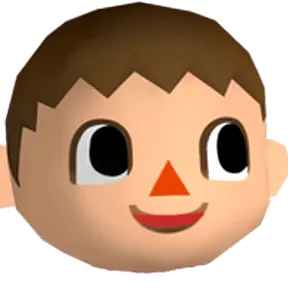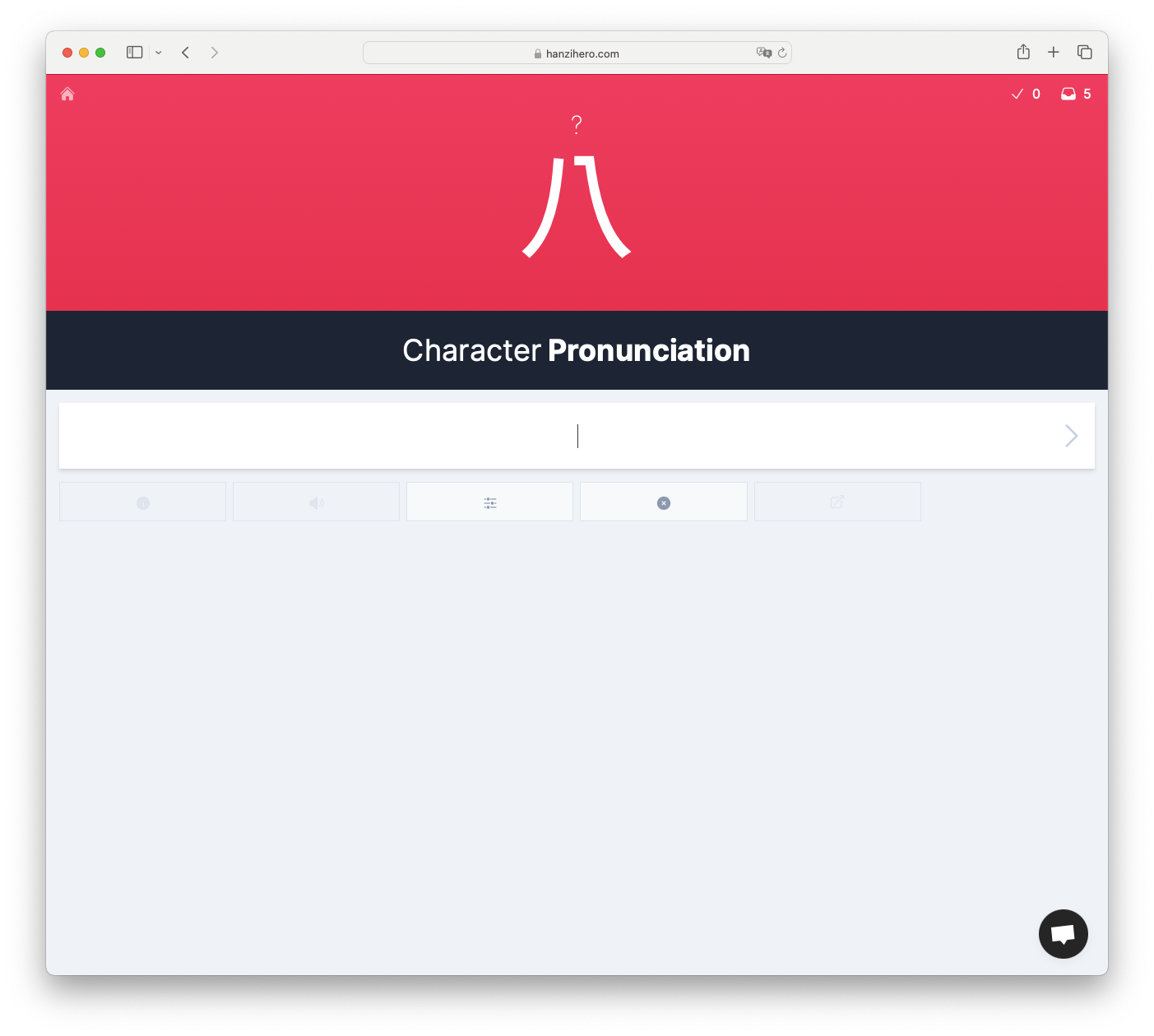The Importance of Correct Chinese Character Pronunciation
 Kevin
\\
Kevin
\\
Every character in Chinese has its own pronunciation. For most characters, there is only one pronunciation associated with it. In order to “read aloud” the character, you simply say the associated pronunciation for it when you come across it in text. E.g, the pronunciation for 去 go is qù .
However, many new students underestimate the importance of correctly memorizing the pronunciation of each character. This critical mistake in the learning process results in long term bad habits that impact your ability to communicate and can be hard to fix.
In this article, we’ll go over the basics of Chinese character pronunciation, why it is so important to learn correctly, and some methods you can use to do so.
- Chinese character pronunciation basics
- Importance of correct pronunciation
- How to remember correct pronunciation
- Conclusion
Chinese character pronunciation basics
Let’s start by covering the basics of Chinese character pronunciation. If you already know the basics fairly well, you can skip to the next section.
Each character has one main pronunciation
In Chinese, each character has main pronunciation. For example, the main pronunciation of the character 好 good is hǎo .
In addition to its main pronunciation, a character may also have other more rare pronunciation when it is used in certain words or grammatical phrases. However, for over 80% of characters, there is only one pronunciation. These other “special cases” don’t need to be worried about too much initially, and will instead be picked up slowly as you learn Chinese.
Pronunciation transcribed by pinyin
The pronunciation of a character is transcribed by pinyin. To go back to our previous example of 好 good, it would be more accurate to say that the pinyin transcription of the character is hǎo , and the pronunciation of it is what you hear when you click the audio icon.
Learning pinyin is its own complex topic. If you are not familiar, just knowing it is a way to precisely transcribe the pronunciation of each character is enough for the purpose of this article.
Each pronunciation has its own tone
Chinese is a tonal language with four main tones and a neutral tone. The pronunciation of any character has its own associated tone.
For example, the character 好 good has the third tone. This is also known as the low tone. Thus, to know the pronunciation of a given character, you must correctly remember the tone for that character as well.
Remembering vs producing pronunciation
In this article, we will be focused primarily on remembering the correct pronunciation. That is, recalling the precise pinyin for a character when you encounter or use it.
A separate issue is accurately producing the correct pronunciation when you read a character. For example, you may know the pinyin for a given character, but may read it aloud incorrectly, producing an incorrect sound with your mouth.
These two issues are closely related. The former is primarily a memory and recall issue, while the later is a phonetic issue.
Importance of correct pronunciation
Now that we’ve covered the basics of Chinese character pronunciation, let’s cover why learning them correctly is so important.
Different tones have different meaning
It is a bit hard for new learners to truly grasp, but different tones will correspond to different characters, and thus different meanings. For example, here are five different tones for the syllable ma, along with their most common associations
- mā - mom (媽)
- má - hemp (麻)
- mǎ - horse (馬)
- mà - to scold (罵)
- ma - question indicator (嗎)
This means that if you say the wrong tone for a given character, there is a very good chance you will not be understood.
In fact, it is better to think of tone not as something “added on top” to a pronunciation, but rather an “essential aspect of correct pronunciation”. Put more plainly: if you remember the tone incorrectly, you do not truly know the character.
Easy to reinforce incorrect pronunciation
Recalling the pronunciation incorrectly for a given character is not that big of a deal in isolation. After all, it is common for us to say words incorrectly in English, especially if they are loan words like “quesadilla” or “bourgeoisie”.
The issue arises in the fact that each time you say or recall this pronunciation incorrectly, you are reinforcing that incorrect pronunciation in your brain.
And, speaking from experience, it is very rare for a Chinese-speaker to correct you. After all, in America it is very uncommon for us to correct the grammatical or pronunciation mistakes of those who are learning the language, as it would be considered rude in some cases.
Hard to correct as time goes on
That reinforced pronunciation will wire itself more firmly into your brain with each repetition, making it harder and harder to correct.
For example, when I first learned Chinese, I often mispronounced 十 ten as shì with the fourth tone instead of shí with the correct second tone. In Taiwan, my incorrect pronunciation was usually interpreted as si4 or 四 four, because it is the closest-sounding numeral with a fourth tone.
It took a couple of days of conscious practice to correct this mistake, and I still occasionally make it. I only wish I caught the issue earlier to avoid creating cementing this mistake in my mind.
How to remember correct pronunciation
Now that we know why remembering the correct pronunciation for each character is so important, let’s look into methods and tips for doing so.
Don’t EVER overlook the tone
One obvious thing is is to NEVER overlook the tone for each pronunciation. However, you would be surprised how common this is for new learners.
As I mentioned earlier, a common mistake for many is to think that tone is “added on top” of the main syllable. That is, if one gets the tone incorrect, it is not big deal, because as long as you remember the main syllable (regardless of tone), you are “close enough”.
This is simply not true. If the tone is incorrect, you are completely incorrect.
As such, make sure you don’t allow yourself to view this aspect of remembering pronunciation lightly. Try not to think of “close” or “not close”, but instead of “strictly correct” or “strictly incorrect”.
Test yourself regularly to ensure correct
The best way to ensure you remember something correctly is to regularly test yourself on it. In HanziHero, for example, we have a built-in SRS quizzing system that regularly quizzes you on the meaning and pronunciation of each character.
This ensures that your memory of a given character is correct, and allows you to quickly fix it if you find yourself remembering something incorrectly.
Type out the pinyin explicitly
Testing yourself regularly is usually not enough. For example, when using a flashcard deck, it is common for users to mark themselves as correct even when they are wrong. For example, when the tone is slightly off, they will think “close enough”. This results in the same bad habits forming over time.
The best way to guard against that is to write or type out the full pinyin for a character each time you quiz yourself on it, before looking at the answer.
This allows you to be extra sure that what you recalled is precisely correct or incorrect.

HanziHero has this built in, requiring the user to type out the meaning and pronunciation of each character when they do their reviews.
Use mnemonics to remember pronunciation
All of this helps you ensure you remember something correctly, but it doesn’t help with actually remembering the pronunciation.
We have found that the best way to do so is to use character mnemonics. HanziHero has a handcrafted mnemonic system that gives a story to each character. That story allows one to easily recall and remember the correct pronunciation for the character. If you are interested, you can check out our page on character mnemonics.
Learn words alongside characters
Another great way to remember character pronunciation (and meaning) is to learn vocabulary words alongside characters. There are a couple of reasons for this.
First, learning any information related to the piece of information you are trying to remember (in this case, a character and its pronunciation) will make it easier to remember. This is how our brain works. The more connections you have in your brain related to a piece of information, the stronger the memory.
Second, sometimes we remember the pronunciation of a word, but not of a character alone. If you remember the pronunciation of 好吃 hǎochī (which means tasty) but not 好 hǎo , you can try to recall that word and its pronunciation to recall the pronunciation of a character.
Lastly, learning words alongside characters allows you to better understand how a character is used in practice.

Due to these reasons, HanziHero also teaches vocabulary words alongside each character. This allows you to not only better remember the character pronunciation, but also learn more of the language as well! A win-win.
Conclusion
The pronunciation of each character is important to learn and remember correctly. Whatever method you use for learning characters, make sure it teaches your the pronunciation in a way that is clear and easy to remember.
If you are looking for an optimal way to learn Chinese characters, consider trying out HanziHero. We have a generous free tier with no time limit or credit card required. We built it for ourselves to learn Chinese, and also to help thousands of others do the same.
Best of luck in your Chinese learning journey!
